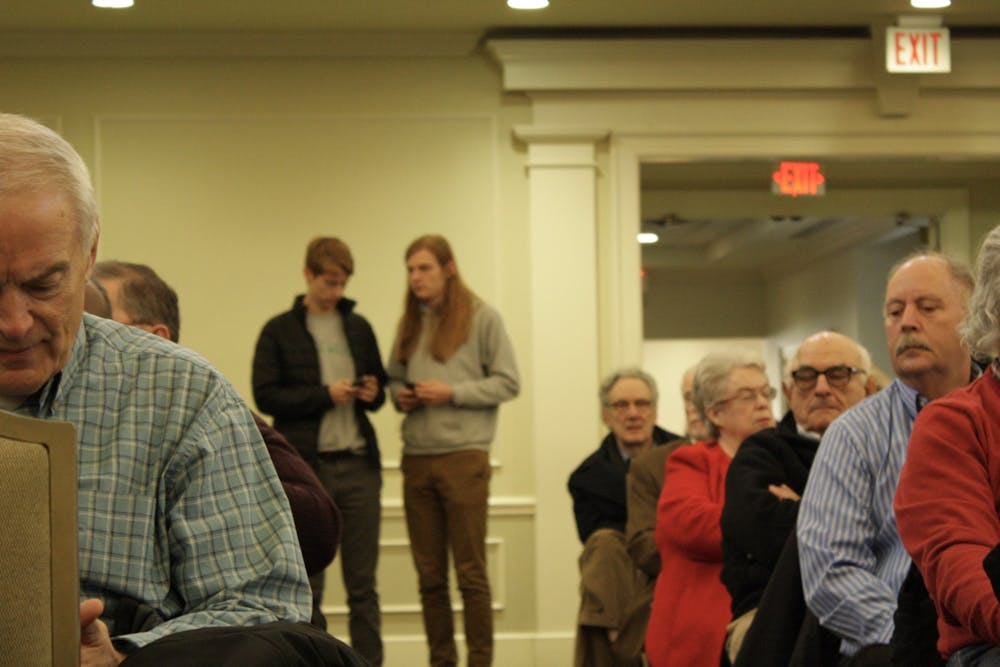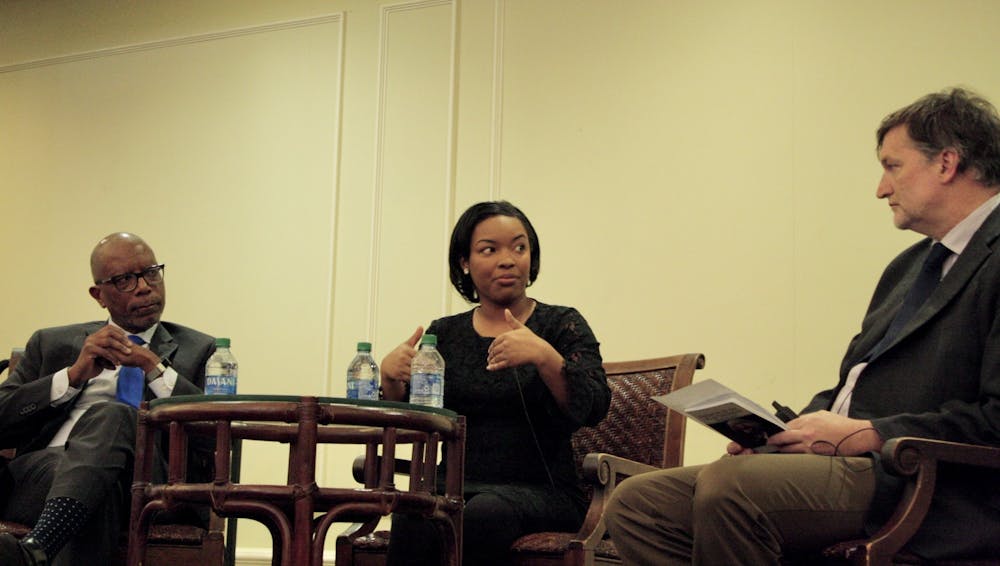Two journalists, one from National Public Radio and one from the Richmond Times-Dispatch, spoke at the University of Richmond on Wednesday about the importance of seeking truth in journalism and objective reporting.
Michael Paul Williams, columnist at the Richmond Times-Dispatch, and Ayesha Rascoe, White House reporter for NPR, spoke at “Leading with Truth: Journalism as a Catalyst for Social Change,” a panel that addressed being journalists during a time when people are contesting the media.
“Someone thought it was pretty important to discredit the media,” Williams said. “Ask why that is. You take away the media, you've taken out something that is in your way and you can do what you want.”
Rascoe talked about how her time covering the White House has evolved, particularly when President Donald Trump’s administration took over in 2017.
“I think there will be long-lasting repercussions,” Rascoe said. “I don’t think [fake news] is a President Trump thing. I think it’s an American thing. I think that it’s a human thing.”
The panel was moderated by Thad Williamson, associate professor of leadership studies at UR. The event took place at 4:30 p.m. in the Jepson Alumni Center.
Williams said sometimes people discredited the news because the information presented was different from their experiences.
“We’re just in our own worlds with our own sets of facts,” Williams said. “No matter how you try to present evidence, people will still think within their same sets of facts.”
In addition to citizens discrediting the news, Rascoe said the politicians she covered would spin the truth.
“I am armed with knowledge and facts,” Rascoe said. “I don’t look at it as a fight. But, I am ready to say that this is what actually happened. You can answer the question. You do not have to answer the question. But this is the question.”
Williams said that citizens could be resistant to conversations about Richmond's past.
“This kind of unwarranted complacency that Richmond has about its need to progress,” Williams said. “I want Richmond to start addressing and healing its past in my lifetime — addressing its inequities that are still being perpetuated in policy.
Enjoy what you're reading?
Signup for our newsletter
“Some people feel like ‘I am a journalist who also happens to be black.’ I am not that guy. I am a black journalist. Part of my job is to advocate and to tell you when you are messing up.”
Williams said that the future of the journalism industry was uncertain.
“I think our challenge is staying in the business,” Williams said. “I think we are as relevant as ever, but the economics of the industry is eradicating us.”
Rascoe hopes that future reporting becomes more inclusive, she said. Rascoe said that journalists could expand their stories to include all information and diverse perspectives.
“I look at accuracy as that you got every name right, you have all of the facts in there. But you got to have context,” Rascoe said. “You’ve got to give the full story. In a way, without context, it’s not truthful because it’s deceptive. You’re not giving the full story.”

Audience members at the "Leading with Truth" panel.
Senior Megan Wiora, who attended the panel, said she wished more students had come to the event. The audience was mainly citizens outside of the university community, she said.
Wiora said that the topic of truth was pertinent to discussions that UR had promoted this past week regarding the racist graffiti written Friday and Saturday.
It’s important for the media to be active when racist incidents occur, Williams said.
“The challenge is balancing the need to project journalistically the horror against bigotry, but also trying not to sensationalize and not to offend,” he said. “Sometimes as a result, though, I think we sanitize the news and I have a problem with that.
"I think people need to lose their breakfast sometimes. They need to be unsettled.”
Contact international editor Olivia Diaz at olivia.diaz@richmond.edu.
Support independent student media
You can make a tax-deductible donation by clicking the button below, which takes you to our secure PayPal account. The page is set up to receive contributions in whatever amount you designate. We look forward to using the money we raise to further our mission of providing honest and accurate information to students, faculty, staff, alumni and others in the general public.
Donate Now



